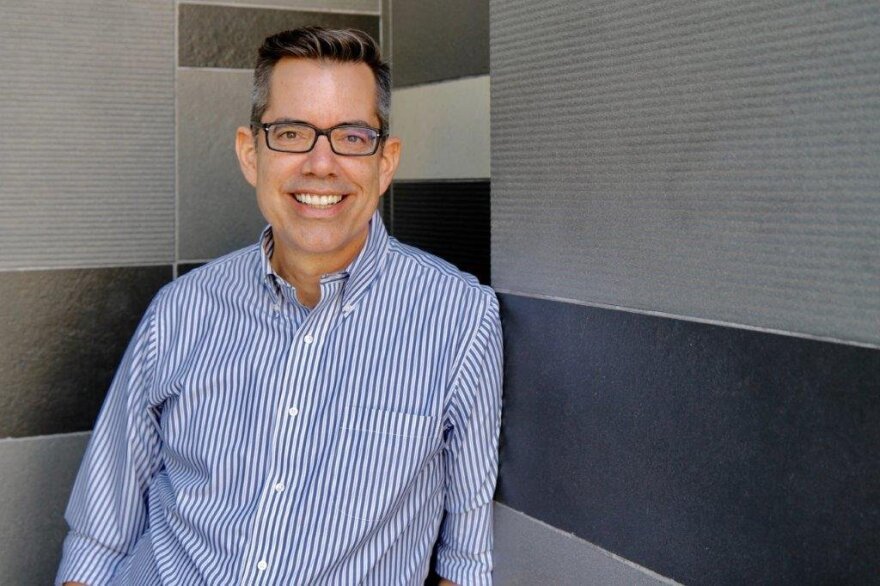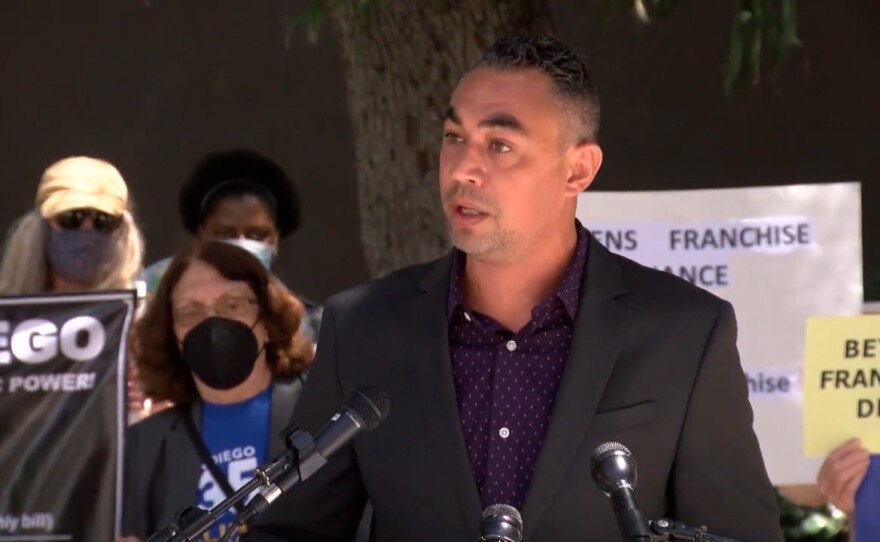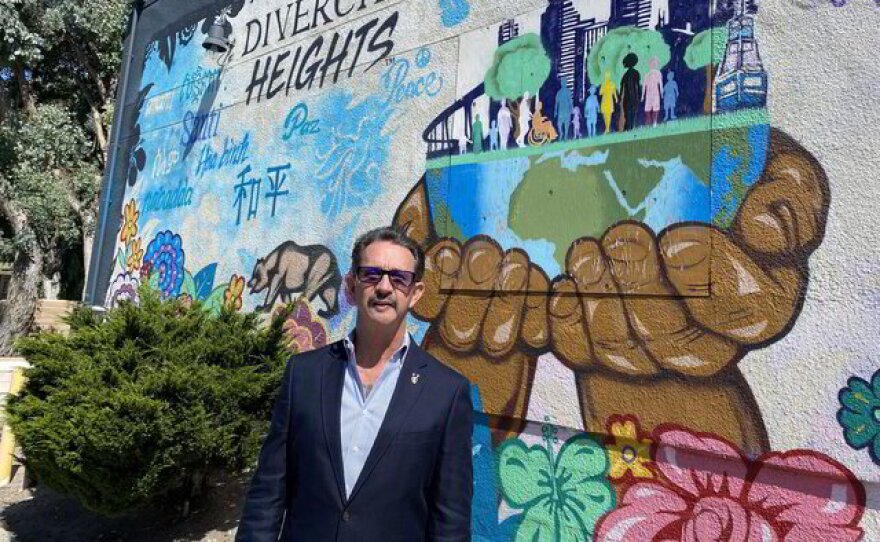What does the city councilmember do?
The city council is the legislative body of the city of San Diego. They can review, amend and adopt new laws in the city, either at the suggestion of the mayor's office or on their own. The council is meant to act as a check on the mayor's power. Two offices — the Office of the City Auditor and the Office of the Independent Budget Analyst — aid the council in their oversight of city operations.
A major part of the council's duties relate to the budget. Every year, the council spends parts of April and May reviewing the mayor's proposed budget and suggesting changes before a final vote in June. They also review quarterly reports on how actual revenues and spending line up with the budget and can make mid-year adjustments, if necessary.
Another important part of a councilmember's job is constituent services. Constituents often contact their councilmember about a broken sidewalk, a tree that needs trimming or a street that needs traffic calming, and they expect the council office to help address their concerns.
To find your council district, search for your address here. Or view the list of communities by district here.
How much does a city councilmember get paid?
City councilmembers earn an annual salary of $178,859. A ballot measure approved by voters in 2018 sets councilmembers' salaries at 75% of the salary of California Superior Court judges.
What issues is the City Council facing?
Homelessness
Many of the complaints councilmembers receive from constituents related to homelessness: such as encampments blocking sidewalks or trash being left in neighborhoods. Councilmembers may or may not do direct, on-the-ground engagement with homeless people, but they and the mayor are responsible for larger policies around homelessness.
Examples of those policy questions include: Where should the city place new homeless shelters? How should shelters be operated and funded? And what role should police officers play in managing the homelessness crisis?
Housing
The council, in concert with the mayor, is responsible for planning where the city should allow new housing to be built. The council adopts community plans that set the zoning for every property in a neighborhood and determine the configuration of streets and other infrastructure. The council can also adopt citywide housing policies that preempt a property's zoning and allow for more density in exchange for affordable housing.
Nowadays, most housing projects fall within the city's development regulations and can get permitted without a public hearing. In some cases, a developer may seek a permit to build something that goes beyond what the zoning and other development rules allow. When this happens, the council often holds the power to approve or deny that development.
Infrastructure
San Diego would have to raise an additional $4.8 billion in revenue over the next five years to fully fund all its infrastructure needs. Those include streets, streetlights, sidewalks, parks, libraries, police and fire stations, stormwater channels, city office buildings and more.
The mayor and city council can ask voters to raise taxes so the city has more funding for infrastructure. But California law requires such taxes to win a two-thirds majority to pass. Without more revenue, the mayor and council have to prioritize which infrastructure needs are the most urgent and which ones have to wait for funding.
What about Districts 1, 5 and 7?
These three races will not be on the general election ballot, as the candidates were uncontested in the primary, according to the City Clerk's office.
District 1's Joe LaCava, District 5's Marni von Wilpert and District 7's Raul Campillo will be sworn into office in December.
District 3
San Diego City Council District 3 includes downtown, Mission Hills, Hillcrest, Golden Hill, North Park, Balboa Park and parts of Mission Valley west of I-805 and south of Friars Road.
Who are the candidates for District 3?

Coleen Cusack
- Democrat
- Public interest attorney
Closer look
Coleen Cusack is a law professor, substitute teacher and attorney who has represented homeless individuals pro bono. She has attempted to position herself as a more progressive alternative to the District 3 incumbent, Stephen Whitburn, on issues including privacy rights, police accountability and homelessness.
Cusack has criticized the city's camping ban, which was spearheaded by Whitburn, as well as the management of the city's sanctioned campsites on the fringes of Balboa Park. She has also opposed the San Diego Police Department's installation of surveillance cameras in various San Diego neighborhoods as an affront to privacy rights. And she has endorsed a proposal to ban police officers from conducting "pretext stops" and "consent searches," which police say are a necessary tool for law enforcement but opponents say exacerbate racial disparities in policing.
Cusack won 20.95% of the vote in the March 5 primary.
Key endorsements
- San Diego Union-Tribune Editorial Board
- San Diego Progressive Democratic Club
- California Democratic Renters Council

Stephen Whitburn
- Democrat
- Incumbent
Closer look
Prior to his election to the city council in 2020, Stephen Whitburn worked as a radio broadcaster and nonprofit executive. He currently serves as the board chairman for the Metropolitan Transit System.
Whitburn has been a close ally of Mayor Todd Gloria, partnering with him on various homelessness initiatives including the city's camping ban and the effort to convert a warehouse near the San Diego International Airport into a 1,000-bed homeless shelter. Whitburn is among the more moderate councilmembers, having voted against reelecting Sean Elo-Rivera, a progressive, as city council president in 2023.
Whitburn won 52.39% of the vote in the March 5 primary. He has the advantage of incumbency and vastly more resources to get his name and message out to voters.
Key endorsements
- San Diego County Democratic Party
- San Diego Police Officers Association
District 9
San Diego City Council District 9 covers a diverse mix of neighborhoods, including City Heights, Talmadge, Kensington, College Area (home to San Diego State University), Rolando, El Cerrito and Mount Hope.
Who are the candidates?

Sean Elo-Rivera
- Democrat
- Incumbent
- City Council President
Closer look
Sean Elo-Rivera is running for a second term to represent City Council District 9. In 2021, a year after taking office, a council majority chose Elo-Rivera to serve as city council president. The vote was close, but Elo-Rivera has been re-elected as council president every year since.
As council president, Elo-Rivera has pushed for the council to take a more active role in policy making and budgeting as opposed to simply following the mayor's agenda. His office crafted a new tenant protection ordinance, which the council adopted last year, making it harder for landlords to evict tenants who abide by their leases and pay rent on time. In the spring, Elo-Rivera secured enough votes to amend Mayor Todd Gloria's budget and slightly increase housing assistance for victims of the Jan. 22 floods.
Elo-Rivera won 51.9% of the vote in the March 5 primary.
Key endorsements
- San Diego County Democratic Party
- San Diego and Imperial Counties Labor Council
- San Diego County Supervisor Monica Montgomery Steppe

Terry Hoskins
- Democrat
- Marine Corps veteran
- Retired police officer
Closer look
Terry Hoskins retired from the Marine Corps in 2008 after 26 years of service. Shortly thereafter he joined the San Diego Police Department, where he worked for 15 years as a patrol officer and community relations officer before retiring again.
Hoskins says he was convinced to run for council by neighbors who were frustrated with Elo-Rivera's representation. He says his work as a police officer helped him get to know every community in District 9 and put him in close contact with its residents, including people experiencing homelessness.
Hoskins has criticized efforts by the mayor and City Council to encourage more housing density, particularly in neighborhoods dominated by single-family homes. He has also opposed bike lanes when they reduce street parking as well as reduced parking requirements for new housing.
Hoskins won 30.1% of the vote in the March 5 primary.
Key endorsements
- San Diego Police Officers Association
- Former City Councilmember Myrtle Cole
- Former City Councilmember Marti Emerald
Explore your virtual ballot
We teamed up with Ballot Ready to offer in-depth information about what's on your ballot with this interactive guide!
- Use your address to get a personalized ballot
- Get info on candidates, measures, and who supports them
- Keep track of your choices and use them to vote







